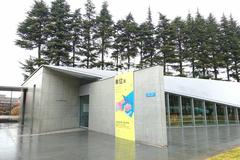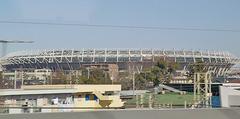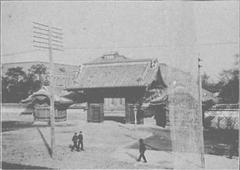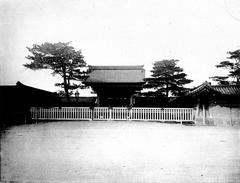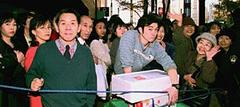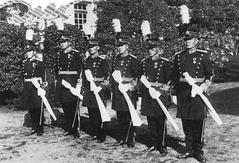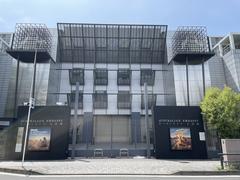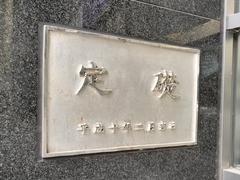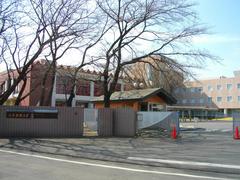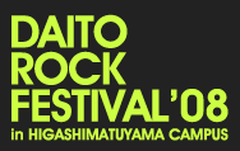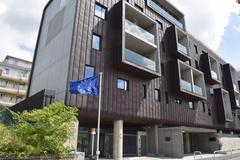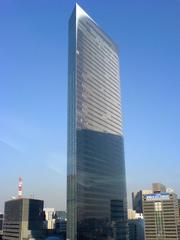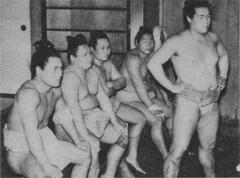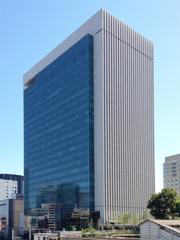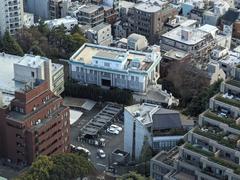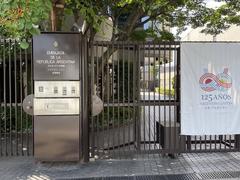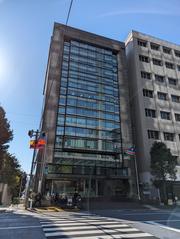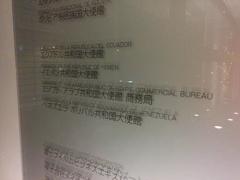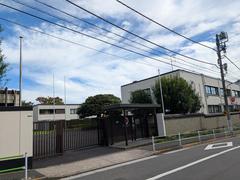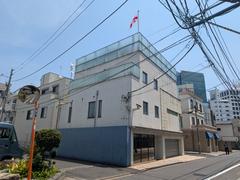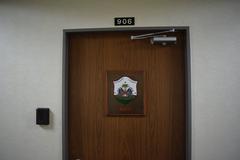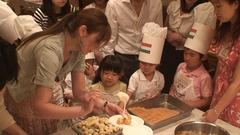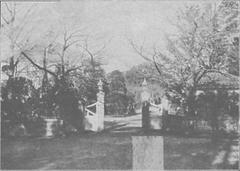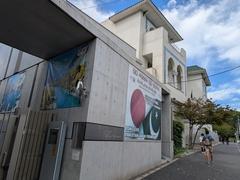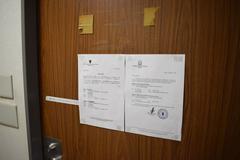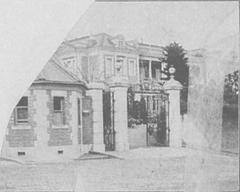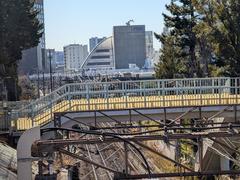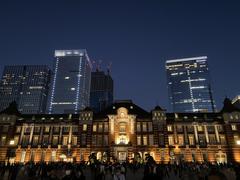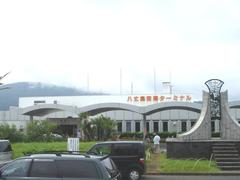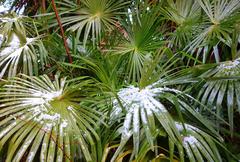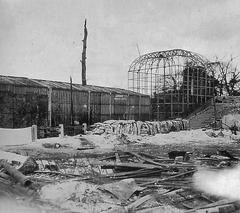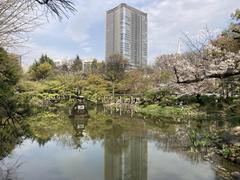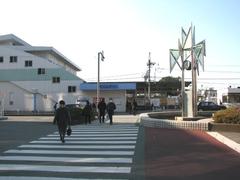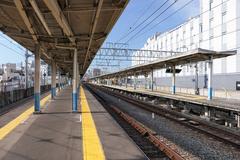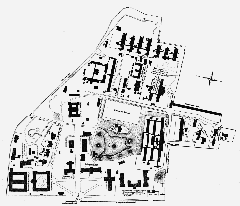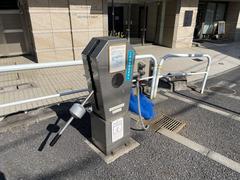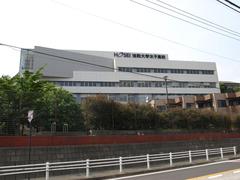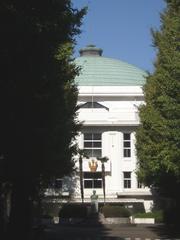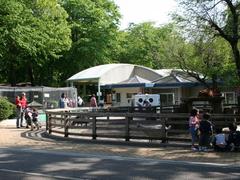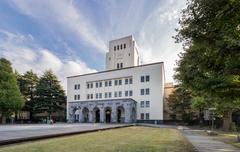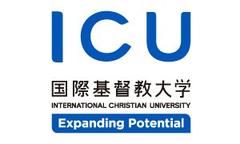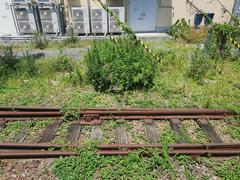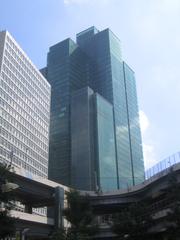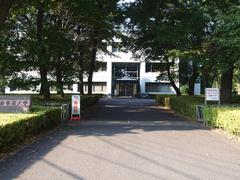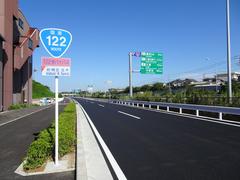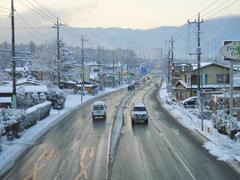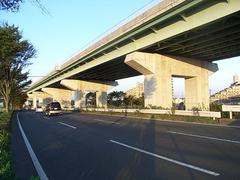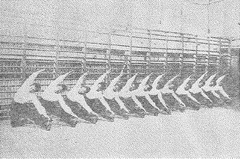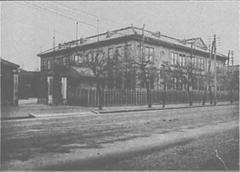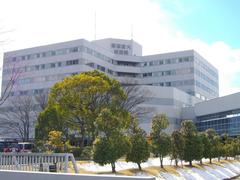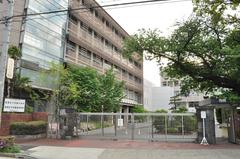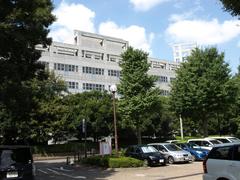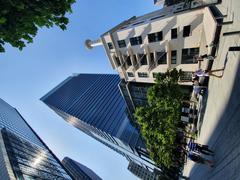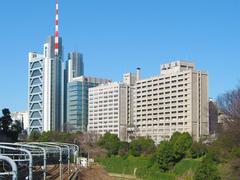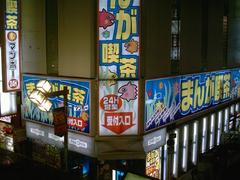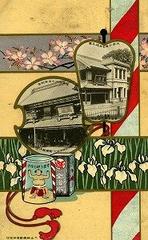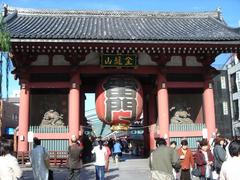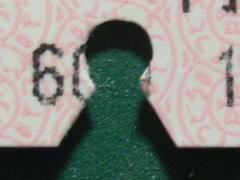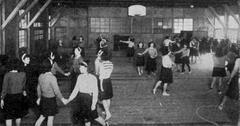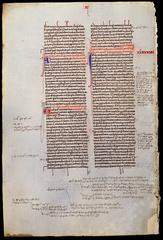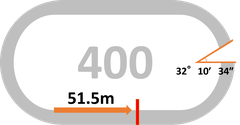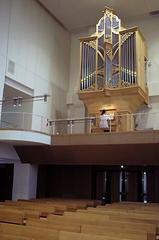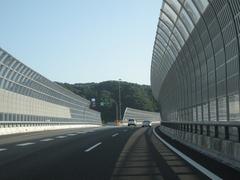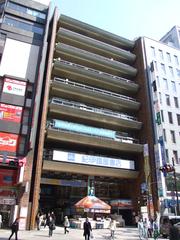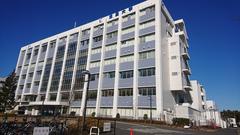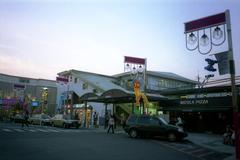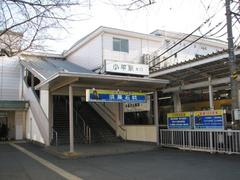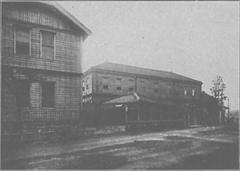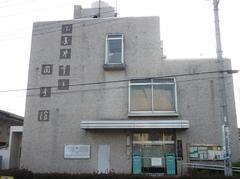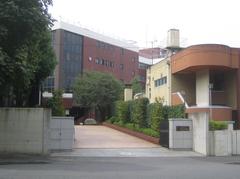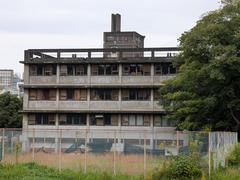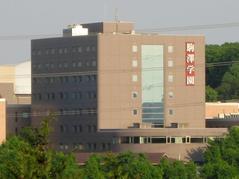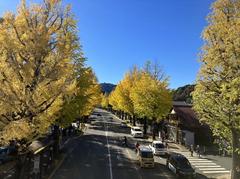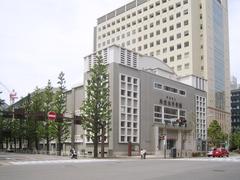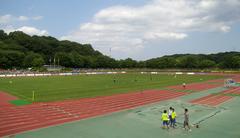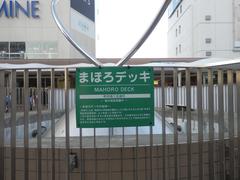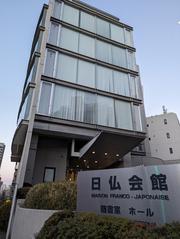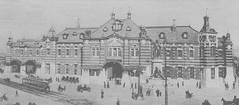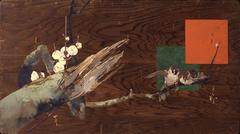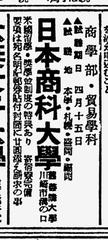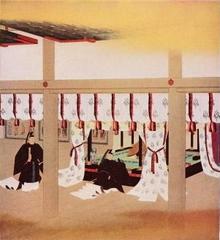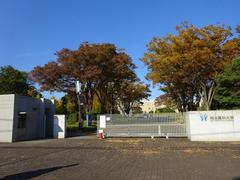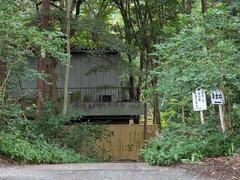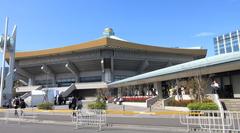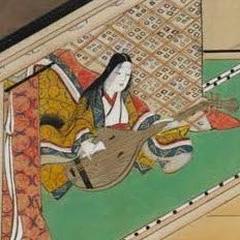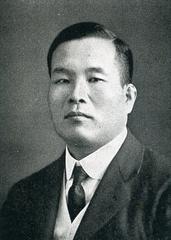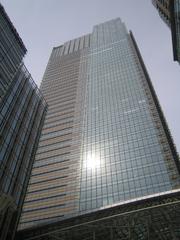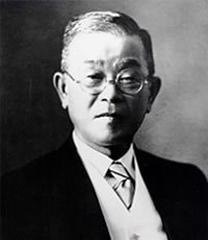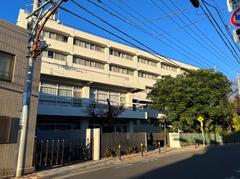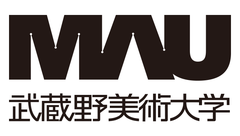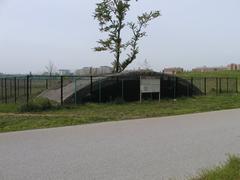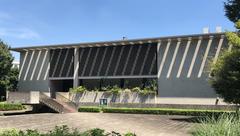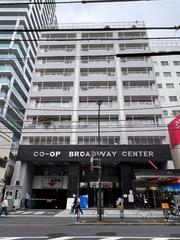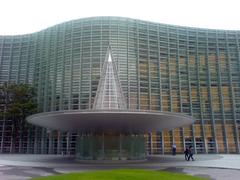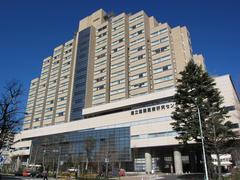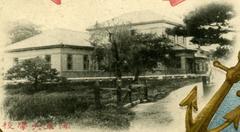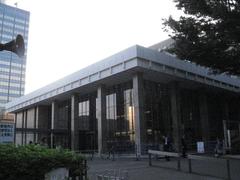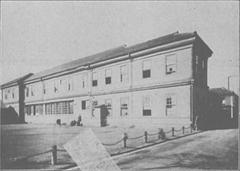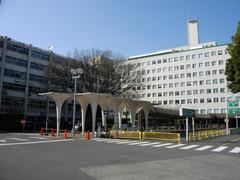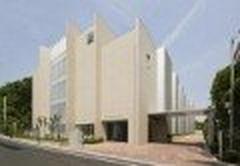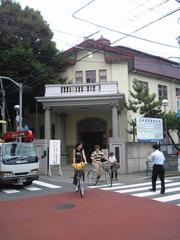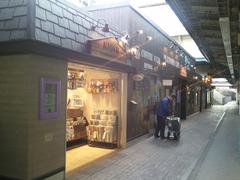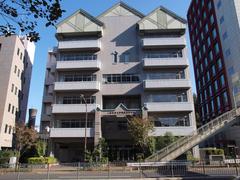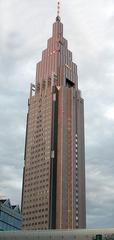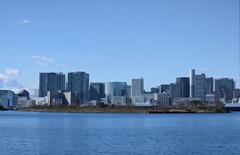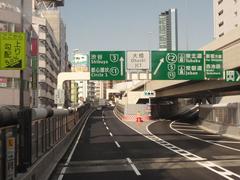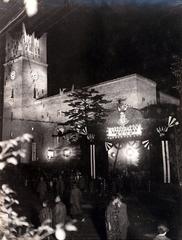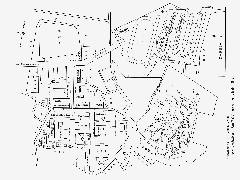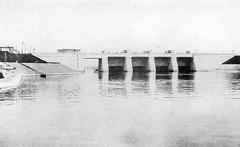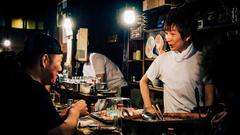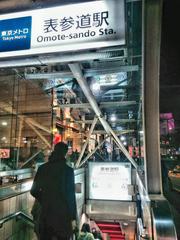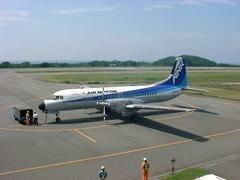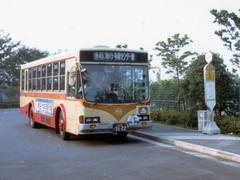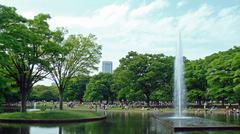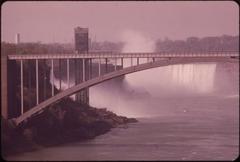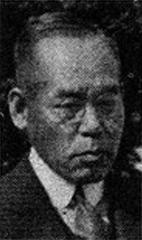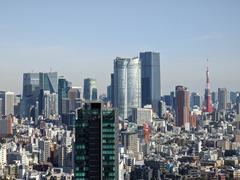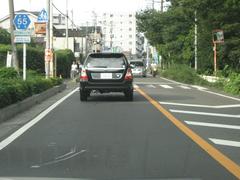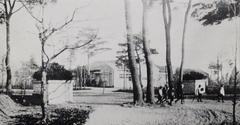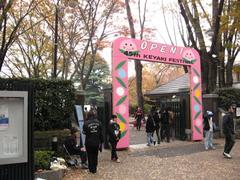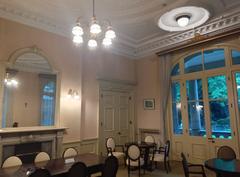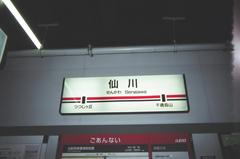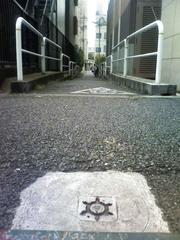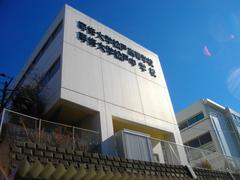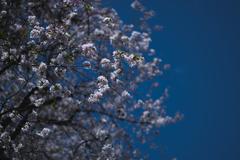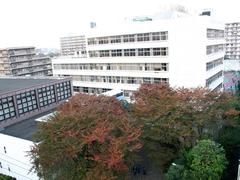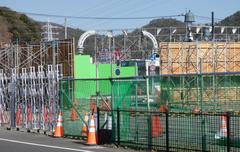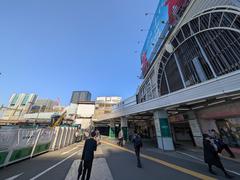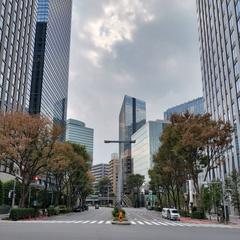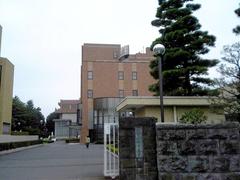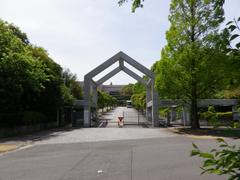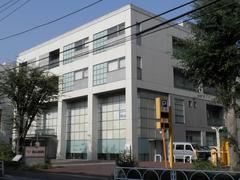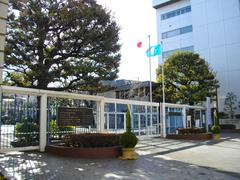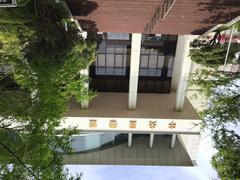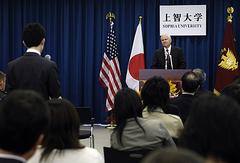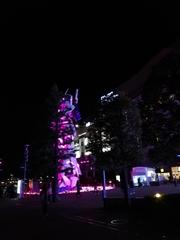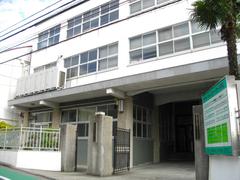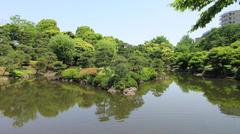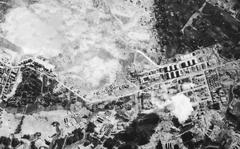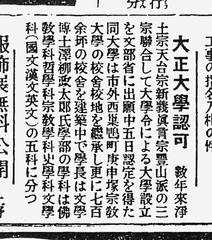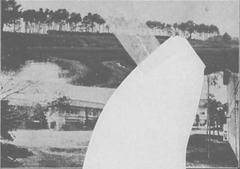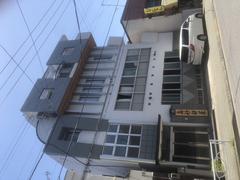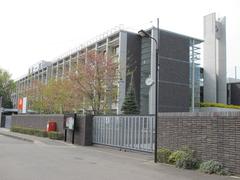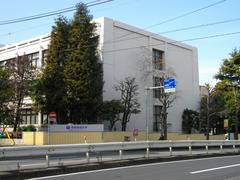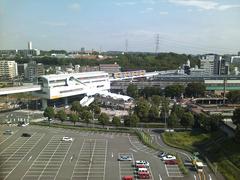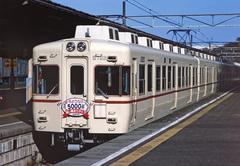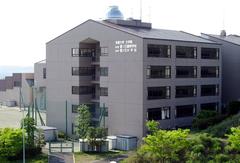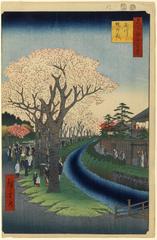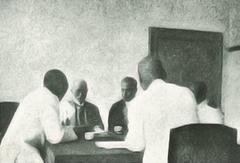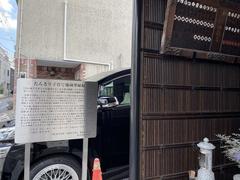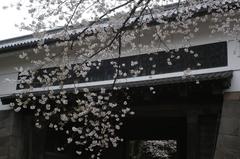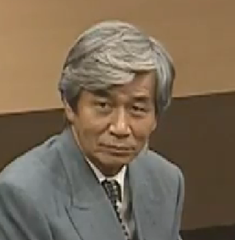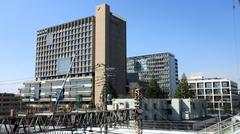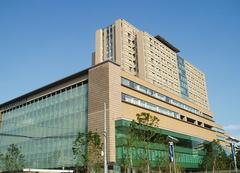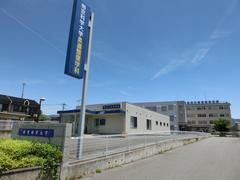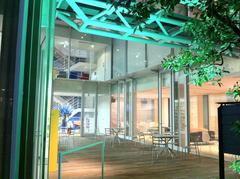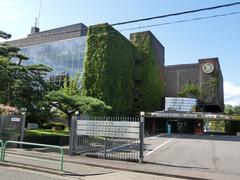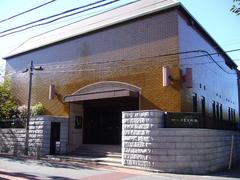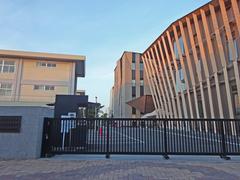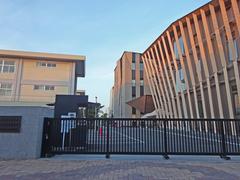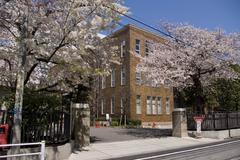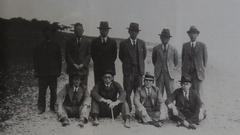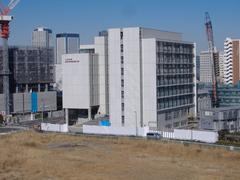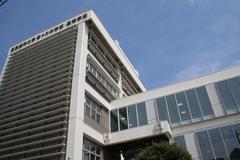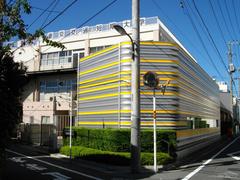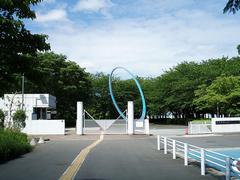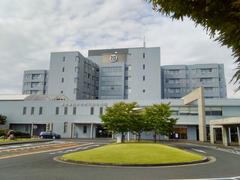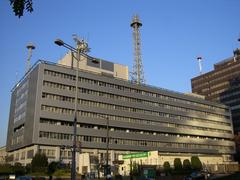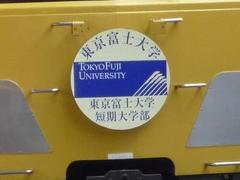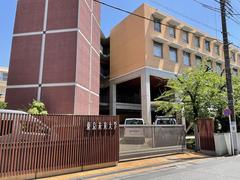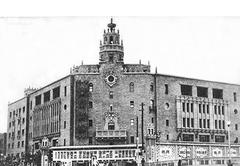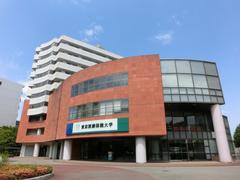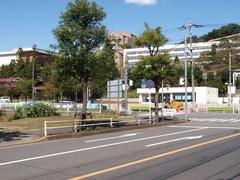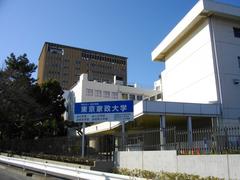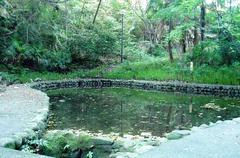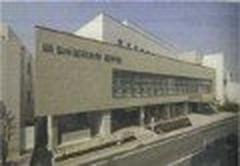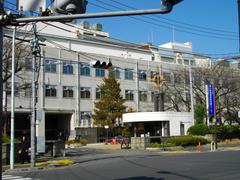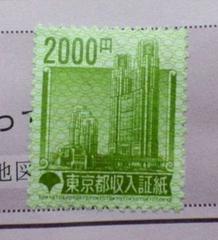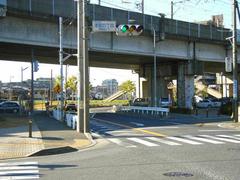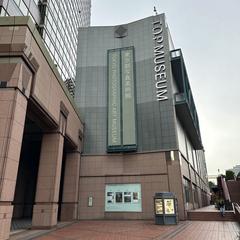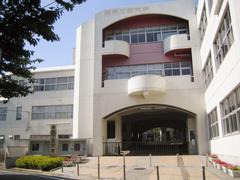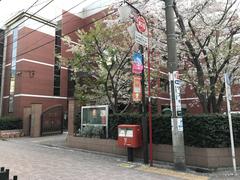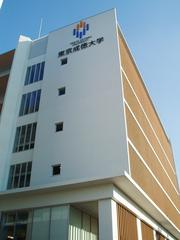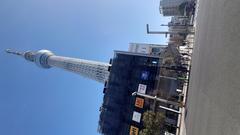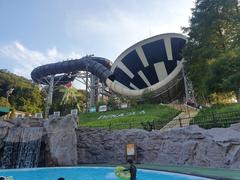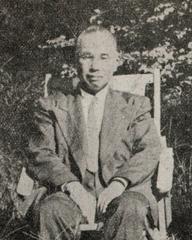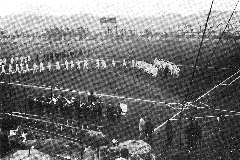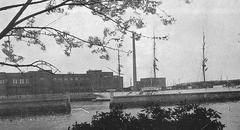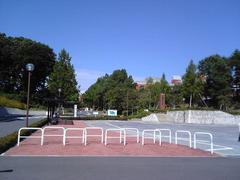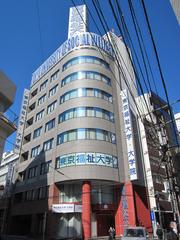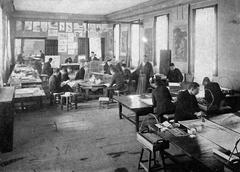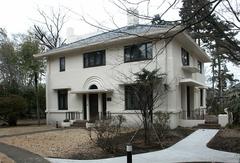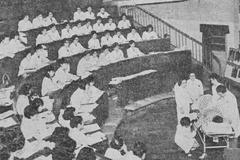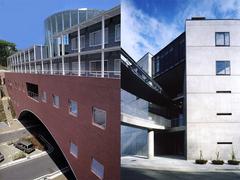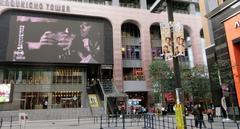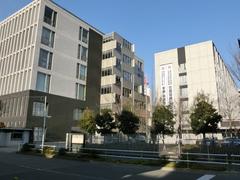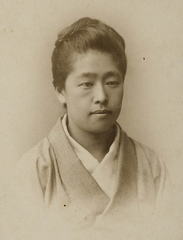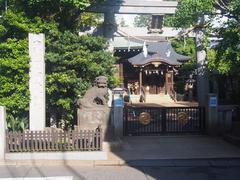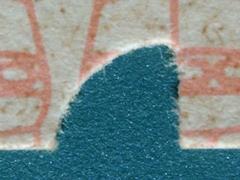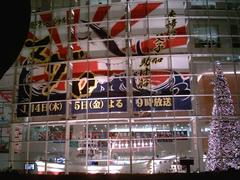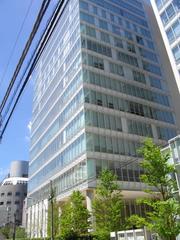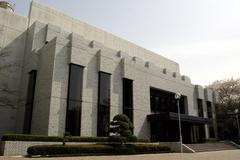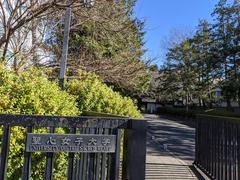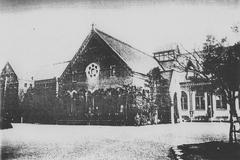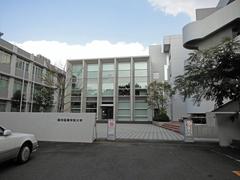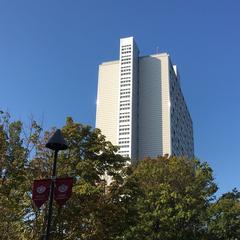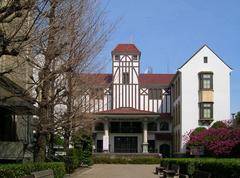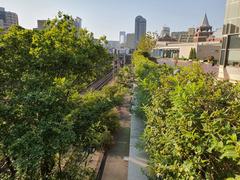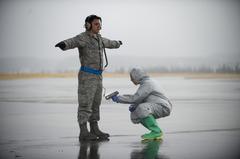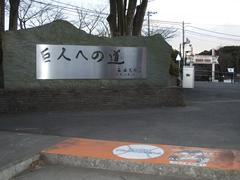
Tachikawa Hospital Visiting Hours, Tickets, and Tokyo Historical Sites Guide
Date: 04/07/2025
Introduction to Tachikawa Hospital and Tokyo Historical Sites
Located in western Tokyo, Tachikawa City is a vibrant area that uniquely blends deep historical roots, dynamic cultural landmarks, and modern amenities. At the heart of this community is Tachikawa Hospital, a key healthcare provider that has evolved alongside the city’s transformation from a Sengoku period outpost to a bustling urban center. Established to meet the needs of a rapidly growing population during the city’s post-war redevelopment, Tachikawa Hospital not only delivers comprehensive medical services but also spearheads health education and outreach programs. The hospital is conveniently accessed from Tachikawa Station on the JR Chuo Line, with general visiting hours from 10:00 AM to 8:00 PM and facilities tailored for multilingual and accessible care (Japan Travel, Tokyo Updates, HospitalBy).
Beyond healthcare, Tachikawa is home to significant historical and cultural sites. The Tachikawa Monument, erected in 1925, commemorates local heroes and the city’s milestones, offering free daily access and guided tours for those seeking to explore Japan’s past (Tachikawa City Tourism, GotoTokyo). For spiritual and architectural enthusiasts, Fukagawa Fudō-dō temple in nearby Koto ward, founded in 1667 and reconstructed after the Great Kanto Earthquake, provides a tranquil retreat and a glimpse of Edo-period religious customs (Tokyo Tourist Info Center).
Natural sites such as Showa Kinen Park and the historic Tamagawa Josui aqueduct further enrich the Tachikawa experience, blending recreational opportunities with historical significance (Japan Experience). This guide delivers essential details on visiting Tachikawa Hospital, exploring historical monuments, and enjoying the area’s cultural tapestry, answering common questions about visiting hours, tickets, accessibility, and nearby attractions.
Table of Contents
- Discover Tachikawa Hospital: History, Visitor Info, and Community Impact
- Visiting the Historic Tachikawa Monument: Hours, Tickets, and Travel Tips
- Exploring Fukagawa Fudō-dō: A Cultural Gem in Tokyo
- Exploring Tachikawa: Cultural Landmarks, Historical Sites, and Visitor Information
- Summary and Tips for Visiting Tachikawa Hospital and Nearby Attractions
- References and Official Links for Tachikawa Hospital
Discover Tachikawa Hospital: History, Visitor Info, and Community Impact
Historical Evolution
Tachikawa Hospital mirrors the city’s journey from a Sengoku-period stronghold to a modern metropolis. The city’s role as a U.S. military base until 1977 profoundly shaped its infrastructure, necessitating the development of public institutions like Tachikawa Hospital (Japan Travel). After World War II, the hospital expanded its services to meet the needs of a growing civilian population, adapting to new healthcare challenges and contributing to the city’s post-war revitalization.
Community Role
Healthcare Hub for Western Tokyo
Tachikawa Hospital is integral to the western Tokyo healthcare network, offering emergency services, specialized clinics, and primary care. Its strategic location—just 30 minutes by rapid train from Shinjuku—makes it a vital resource for the Tama region (Tokyo Updates). Nearby facilities like Kawano Hospital and Tachikawa Sogo Hospital Children’s Clinic further strengthen the local healthcare system (HospitalBy).
Social and Civic Anchor
The hospital leads in health education, preventive care, and support for vulnerable populations through outreach and partnerships (PMC Article). Its programs reinforce community resilience and reflect Tachikawa’s commitment to balancing modernity with tradition.
Urban Development Response
Tachikawa Hospital’s growth parallels the city’s transformation, with new facilities and services responding to urbanization—especially following the redevelopment of the former U.S. military base. Its proximity to GREEN SPRINGS, a multipurpose wellness and shopping complex, highlights the integration of healthcare into urban planning (Tokyo Updates).
Visitor Information
- Visiting Hours: Typically 10:00 AM to 8:00 PM. Confirm with the hospital for department-specific or temporary changes.
- Address: 1234 Tachikawa, Tokyo 190-0012 (verify on official website).
- Access: Short walk or bus ride from Tachikawa Station (JR Chuo Line), 30 minutes from Shinjuku by rapid train.
- Admission: No tickets required; appointments and insurance info available via official channels.
- Accessibility: Wheelchair ramps, multilingual support, and clear signage; 24/7 emergency services.
Special Events and Community Engagement
While public tours are not generally available, the hospital hosts health seminars and outreach events. Event details can be found on the hospital’s website or through local government announcements.
Nearby Attractions
- GREEN SPRINGS: Nature-infused shopping and wellness destination.
- Showa Kinen Park: Expansive park famed for seasonal flowers.
- American Village: Neighborhood echoing Tachikawa’s U.S. military history.
Each offers excellent photo opportunities and complements a hospital or city visit.
Visiting the Historic Tachikawa Monument: Hours, Tickets, and Travel Tips
Overview
The Tachikawa Monument, established in 1925, honors local heroes and key moments in the region’s history. Its detailed carvings offer insights into Japanese artistry and the city’s transformation from rural roots to urban vitality (Tachikawa City Tourism, GotoTokyo).
Visiting Details
- Hours: Grounds open daily from 8:00 AM to 6:00 PM; visitor center from 9:00 AM to 5:00 PM.
- Admission: Free. Guided tours and special exhibits may require prior booking and a small fee.
- Best Time: Spring and autumn offer the best weather and scenery.
- Access: 10-minute walk from Tachikawa Station (JR Chuo, Nambu, Ome Lines).
- Accessibility: Wheelchair-accessible paths, multilingual brochures, accessible restrooms.
Activities
- Guided Tours: Available in English, Chinese, and other languages.
- Events: Seasonal festivals, commemorative ceremonies, and illuminations enhance the experience.
- Nearby: Showa Kinen Park, Tachikawa Art Museum, and local eateries.
Photography Tips
Visit at sunrise or sunset for dramatic lighting; cherry blossoms in spring and vivid foliage in autumn provide beautiful photographic settings.
Exploring Fukagawa Fudō-dō: A Cultural Gem in Tokyo
Introduction and Significance
Fukagawa Fudō-dō, a Buddhist temple in Koto ward, traces its origins to 1667. Dedicated to Fudō Myōō, it is a cornerstone of spiritual life and cultural preservation, rebuilt after the 1923 earthquake and renowned for its Edo-period architecture.
Location and Hours
- Address: 2-2-3 Ougibashi, Koto-ku, Tokyo 135-0011
- Hours: Daily, 9:00 AM – 5:00 PM
- Admission: Free (some ceremonies may require tickets; check the official site)
- Access:
- Sumiyoshi Station (Hanzomon, Shinjuku Lines): 10–15 min walk.
- Kiyosumi-shirakawa Station (Hanzomon, Oedo Lines): 15–20 min walk.
- Monzen-nakacho Station (Tozai, Oedo Lines): 20 min walk.
- Bus: Toei buses along Ougibashi-dori (Tokyo Tourist Info Center).
Visitor Experience
- Guided Tours: Occasionally available; inquire at the temple office.
- Photographic Spots: Main hall, stone lanterns, gardens; especially scenic during seasonal events.
- Nearby Attractions: Fukagawa Edo Museum, Tomioka Hachiman Shrine, Sumiyoshi Park.
Visitor Tips
- Wear modest clothing; masks appreciated inside.
- Photography is allowed in most areas, but avoid flash inside the main hall.
- Ramps provide wheelchair access, though some areas may be challenging.
Exploring Tachikawa: Cultural Landmarks, Historical Sites, and Visitor Information
Tamagawa Josui (Tamagawa Aqueduct)
Built in the 17th century, the Tamagawa Josui aqueduct is a historical engineering feat with scenic walking paths.
- Hours: Open year-round.
- Admission: Free.
- Accessibility: Wheelchair- and stroller-friendly.
Local Shrines and Temples
Numerous smaller shrines and temples offer quiet spaces for reflection and opportunities to experience local festivals such as Tanabata.
Showa Kinen Park
A premier attraction featuring Japanese and European gardens, flower fields, cycling paths, and playgrounds (Japan Experience).
- Hours: 9:30 AM to 5:00 PM (Oct–Mar), 9:30 AM to 6:30 PM (Apr–Sep).
- Admission: Adults ¥450; children under 12 free.
- Accessibility: Wheelchair rental and well-maintained paths.
Shopping and Dining
The area around Tachikawa Station offers extensive shopping (Isetan, Takashimaya), retro food alleys, and modern cafés.
Practical Information
- Transport: JR Chuo Main Line, Tama Monorail; easy access to central Tokyo.
- Accommodation: Multiple business hotels with WiFi and tourist amenities.
- Language: Increasing English signage; basic Japanese phrases helpful.
- Etiquette: Maintain quiet in public spaces, dispose of waste properly.
Integration with Greater Tokyo
Tachikawa is an excellent starting point for exploring western Tokyo’s natural attractions, including Mount Takao and the Tama River.
Summary and Tips for Visiting Tachikawa Hospital and Nearby Attractions
Tachikawa City seamlessly combines historical depth, cultural vibrancy, and advanced healthcare. Tachikawa Hospital serves as a pillar of the community, offering accessible services and engaging in public health initiatives. The city’s historical sites, from the Tachikawa Monument to Fukagawa Fudō-dō, provide immersive experiences into Japan’s past, while Showa Kinen Park and GREEN SPRINGS offer natural beauty and relaxation. Accessibility and multilingual support are priorities across major sites.
For the best experience:
- Confirm current visiting hours and event schedules on official websites.
- Use the Audiala app for real-time updates and personalized recommendations.
- Visit the Tachikawa Tourist Information Corner for maps and multilingual assistance.
Tachikawa’s dedication to honoring its heritage, fostering community health, and embracing sustainable urban development makes it a standout destination in the Tokyo metropolitan area (Japan Travel, Tokyo Updates, PMC Article, Tachikawa City Tourism, Tokyo Tourist Info Center).
References and Official Links for Tachikawa Hospital
- Japan Travel, 2023, Tachikawa City History and Landmarks
- Tokyo Updates, 2023, Tachikawa City and GREEN SPRINGS Development
- HospitalBy, 2023, Medical Facilities in Tachikawa
- PMC Article, 2022, Community Health Initiatives at Tachikawa Hospital
- Tachikawa City Tourism, 2024, Tachikawa Monument
- GoTokyo, 2024, Tokyo Monuments Travel Guide
- Japan Experience, 2024, Showa Kinen Park and Tachikawa Attractions
- Tokyo Tourist Info Center, 2024, Fukagawa Fudō-dō and Local Transportation

